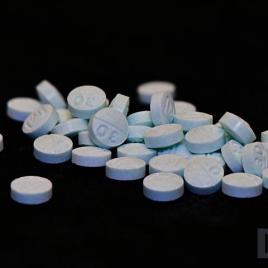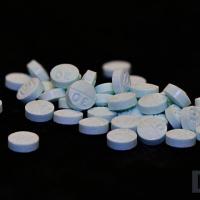Rite Aid $409M Settlement Resolves CSA, False Claims Allegations Related to Dispensing Practices

Rite Aid Corp. and 10 company subsidiaries and affiliates have entered into an agreement with the Department of Justice (DOJ) to resolve allegations that the company’s pharmacies illegally dispensed controlled substances, including opioids, and caused false reimbursement claims to be filed with federal health care programs (United States ex rel. White v. Rite Aid Corp., No. 1:21-cv-1239 (N.D. Ohio)).
Under the terms of the settlement agreement, Rite Aid agreed to pay the government $7.5 million within 10 days following the effective date of the company’s Chapter 11 plan of reorganization, which is currently pending in the U.S. Bankruptcy Court for the District of New Jersey (In re Rite Aid Corp., Bankr. Case No. 23-18993-MBK (Bankr. D.N.J.)).
In addition, the government was to have an allowed, unsubordinated, general unsecured claim of $401,868,524 in the bankruptcy case. The exact amount that the government was to recover would depend on the ultimate amount of assets available to the bankruptcy estate for distribution to unsecured creditors, the DOJ said.
Allegations in Complaint in Intervention
In a complaint in intervention filed in March 2023 in the U.S. District Court for the Northern District of Ohio, the government had alleged that between May 2014 and June 2019 Rite Aid “knowingly dispensed at least hundreds of thousands of unlawful prescriptions for controlled substances that (1) lacked a legitimate medical purpose and were not issued in the usual course of professional practice and/or (2) were not valid prescriptions, were not for a medically accepted indication or were medically unnecessary,” the DOJ said in announcing the settlement July 10.
Specifically, the government alleged, the controlled substances illegally dispensed included “dangerous, highly diverted” combinations of drugs known as “the trinity”; prescriptions for excessive quantities of opioids, including oxycodone and fentanyl; and “prescriptions issued by prescribers who Rite Aid pharmacists had repeatedly identified internally as suspicious and as writing unlawful, unnecessary prescriptions.”
Moreover, according to the DOJ, the prescriptions were illegally dispensed despite clear red flags indicating that the prescriptions were illegal, despite “specific concerns raised by its pharmacists,” and despite internal notes written by the pharmacists (for example, “writing excessive dose[s] for oxycodone” and “DO NOT FILL CONTROLS”) that purportedly were intentionally deleted.
“By knowingly dispensing unlawful prescriptions for controlled substances,” the DOJ said, “Rite Aid violated the [Controlled Substances Act (CSA)] and, where Rite Aid sought reimbursement from federal health care programs, also violated the [False Claims Act].”
Additional Washington State Allegations
The settlement agreement also stated that the government had additional civil claims arising under the CSA involving conduct at Rite Aid pharmacies in Washington state that had not been alleged in the DOJ’s March 2023 complaint in intervention.
Specifically, the government contended, between January 2017 and January 2022 those pharmacies violated the CSA “by filling prescriptions for controlled substances issued by individual practitioners who did not have valid state licenses to practice medicine or otherwise lacked state prescribing authority to prescribe controlled substances.”
Allocation of Settlement Amount
The $409,368,524 total settlement amount was to be allocated as follows:
- $236,090,058 in CSA penalties to settle the DOJ’s allegations under the CSA in the complaint in intervention, none of which was designated as restitution;
- $167,973,926 (including the entire initial payment of $7.5 million) to settle the DOJ’s allegations under the False Claims Act in the complaint in intervention, of which $80,236,964 was designated as restitution; and
- $5,304,539 in CSA penalties to settle the Washington state allegations, none of which was designated as restitution.
Qui Tam Action
The settlement resolved allegations originally brought under the False Claims Act in a qui tam action filed by three relators in October 2019 in the U.S. District Court for the Eastern District of Pennsylvania. The case was later transferred to the U.S. District Court for the Northern District of Ohio.
The DOJ intervened in the case in November 2022 and filed its complaint in intervention four months later. In the complaint, the government alleged that through its dispensing of prescriptions for controlled substances in violation of the CSA, Rite Aid had submitted false reimbursement claims or caused false reimbursement claims to be submitted to the Medicare, Medicaid and TRICARE programs.
Under the terms of the settlement agreement, the relators were to receive 17% of the initial $7.5 million payment as part of the relators’ share of the settlement. They also were to receive 17% of the general unsecured claim up to a maximum of $28,555,567.
On June 28, the bankruptcy court approved the settlement as part of Rite Aid’s reorganization plan, which the DOJ said was expected to become effective this summer.
Memorandum of Agreement
Also, as part of the agreement Rite Aid entered into a memorandum of agreement (MOA) with the DEA that was designed to increase communication among the company, its retailers and the agency.
Under the MOA, employees will receive additional training to help them identify illegitimate prescriptions and minimize the risk of drug diversion, according to the DOJ. The agreement also required Rite Aid to create and maintain materials relevant to DEA investigations for at least five years, as well as to create and manage an anonymous hotline through which employees, patients and the public may report suspected illegal dispensing of highly diverted controlled substances and suspected violations of the CSA.
Corporate Integrity Agreement
Rite Aid also entered into a five-year Corporate Integrity Agreement (CIA) with the Department of Health and Human Services Office of Inspector General.
Under the CIA, Rite Aid was to establish an Independent Review Organization that would review retail pharmacy claims submitted by Rite Aid and reimbursed by Medicare and Medicaid. The reviews were intended to determine whether:
- the claims were consistent with the underlying prescription documentation maintained by Rite Aid;
- the prescription drugs furnished by Rite Aid were dispensed according to a valid prescription;
- Rite Aid maintained appropriate documentation of a valid prescription for each drug dispensed, including any refills;
- any prior authorization required by the payor was obtained; and
- the retail pharmacy claims were correctly billed and reimbursed.



